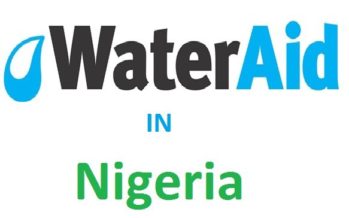WaterAid Partners SSDO, ENSG To Train Enugu Students On Sanitary Pad Production
Featured, Latest Headlines, News Across Nigeria Monday, June 3rd, 2024
(AFRICAN EXAMINER) – As part of efforts to ensure that young people have practical information on menstrual health and hygiene, WaterAid Nigeria in partnership with her implementing partner in Enugu State, South Saharan Social Development Organization SSDO and the state government have carried out a training on production of sanitary pads for students of Iva Valley Secondary School, Enugu.
Both male and female students of the school received mentorship and coaching training.
The two day workshop was held at the school hall, weekend and was attended by the students who are expected to teach students of neighboring schools.
Our Correspondent writes that the participants were taught by experts on how to produce eco friendly reusable sanitary pads using eco friendly and affordable materials
Speaking at at the occasion which was part of activities lined up to Commemorate the 2024 world Menstrual Hygiene Day, Country Director, of WaterAid, in Nigeria, Evelyn Mere, who was represented by the Enugu State WaterAid lead, Solomon Akpanufot, noted that every May 28th they are reminded of the importance of good menstrual hygiene management and how crucial it is for the health, well-being, and empowerment of women and girls worldwide.
The WaterAid country Director explained that his year’s commemoration is phenomenal as it marks 10 years; celebrating a decade of raising awareness about the fundamental role that good menstrual health and hygiene (MHH) plays in enabling women, girls and all who menstruate to reach their full potential.
“Menstruation is a normal and healthy part of life for most women and girls, although many of them lack access to menstrual products, facilities and education in the society including constraints by cultural taboos and discriminatory social norms.
“The resultant factor for lack of information about menstruation leads to unhygienic and unhealthy menstrual practices creating misconceptions and negative attitudes, which motivate, among others, shaming, bullying, and even gender-based violence.
“People who menstruate face even greater challenges in communities without decent water, sanitation and hygiene facilities especially in public places.
“According to the 2021 Water, Sanitation and Hygiene National Outcome Routine Mapping (WASHNORM) Survey, in Nigeria, 94% of healthcare facilities do not have access to basic water, sanitation and hygiene services. While 89% of schools and 96% of markets and motor parks do not have basic water supply, sanitation, and hygiene services.
“This year’s theme ‘Together for a #Period Friendly World’ is apt as it calls for a multi-sectoral approach in addressing the stigma and taboos surrounding menstruation and creating a world where everyone can access the products, period education and period-friendly infrastructure they need.
“WaterAid is committed to working in schools and communities in Nigeria to ensure people have practical information on menstrual health and hygiene as well as access to decent toilet facilities and safe, affordable products including guidance on how to make their reusable materials and how to use menstrual materials safely.
“We are also working with government ministries, such as the Ministry of Women Affairs in the development of a National Menstrual Hygiene Policy; the Ministry of Water Resources and Sanitation alongside the Ministry of Environment in the development of a National WASH
Mere noted that the policy addresses Menstrual Hygiene Management in line with the Africa Sanitation Policy Guideline (ASPG).
“These steps ensure that menstrual health is included in policies, programmes and related budgets so people get the support they need.
“It is evident that promoting Menstrual Health and Hygiene Management (MHM) is not only a sanitation matter; it is also an important step towards safeguarding the dignity, health and overall life opportunities of women and girls. Hence, the need for all stakeholders to come together.
The event was attended by Staff of SSDO, led by it’s Water Sanitation and Hygiene (WASH) programme Lead, Uju Prisca Ezeike, officials of the Enugu state government as well as other Stakeholders in the Health Sector.
Related Posts
Short URL: https://www.africanexaminer.com/?p=96117






















